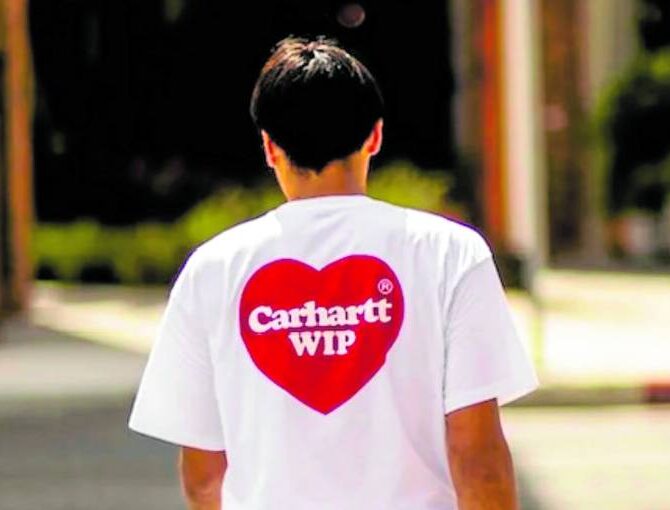The era of fake news, disinformation, misinformation and trust issues brought about by pervasive social media and digital technology; the rise of cult brands hinged on social messages that early adopter young millennial and Gen Z believe offer more bang for the buck; a hybrid physical and digital environment aided by technology, chat groups, algorithms, artificial intelligence and catgut—these are some of the key marketing trends likely to impact brands in a major way.
Megatrend No. 1: Branding becomes more important in the era of fake news, disinformation and misinformation.
Trust is a key attribute of strong brands. Brands on the Brain study by researcher Esch, et al. reveals that when potential consumers process unfamiliar and weak brands, there comes with it a perception of uncertainty as well as risk and a host of negative associations. These negative associations may become permanent associations surrounding the unfamiliar brand if no strategic brand activity is engaged in.
When a brand is strong, consumers think twice about believing the fake news surrounding a brand under attack.
Megatrend No. 2: On the rise are cult brands with social messages that resonate with the younger millennial and Gen Z consumers.
Authenticity is key when embracing social messages. Low-key early adopters remain ever loyal to their favored brands that mimic what they believe or that identify with them. Fear of God Essentials is a timeless clothing label collection of high street comfortable luxury fashion comprising tees, hoodies, sweatshirts, footwear, shorts, etc. The brand was founded in 2013 and designed by Jerry Lorenzo Manuel. Spotted on fashion influencers Kanye West, Jay-Z, Justin Bieber, Rihanna, Kim Kardashian, etc., it is by no means a Christian brand, but the moniker represents Lorenzo’s belief as a devout Christian.
Carhartt WIP, an American apparel brand founded in 1889 by Hamilton Carhartt, continues to make high-quality, durable street wear clothing recognized as the most iconic and oldest workwear, outdoor apparel and gear brand that includes wind-resistant, snag-proof jackets, coats, overalls, vests, etc. The brand continues to espouse the shared values of hard work, dependability, honesty and trust. It’s popular among music artists and celebs like Gen Z star Charli D’Amelio and millennials Sophia Turner, Julia Fox, Rihanna, Kacey Musgraves and Jennifer Lawrence.
Golden Goose is an Italian high fashion sneaker brand founded in 2000 by Alessando Gallo and Francesca Rinaldo. Known for its not-so-scruffy, distressed practical look, loyal users have to wear it a couple of times to walk without stiffness or wincing from pain and experience ultra comfort. It is worn as a statement by those who want to play by their own rules, defying popular norms and standards. Selena Gomez, Megan Fox are among its many wearers.
The world’s first sustainable sneaker brand, Veja, was founded in 2004 by Sebastien Kopp and Francois Marillon. Reese Witherspoon, Katie Holmes, Meghan Markle and Emma Watson wear this French footwear made with organic cotton, wild rubber, vegetable-tanned leather and recycled plastic bottles.
Megatrend No. 3: A hybrid physical and online environment is here to stay, causing consumers to face an onslaught of product and service choices.
This makes brand recall more imminent in both offline and online spaces. Without brand recall in a specific category, it would be nearly impossible to attract consumption on and off the digital space. Loads of information—true and honest, disinformation and misinformation or even fake news—can simply overwhelm a potential consumer.
Online, thousands of brands and existing and new competition continue to erode the remaining consumer base of weak brands. Digital technology, chat groups, algorithm, artificial intelligence and ChatGPT, all enabled by countless competitors, help distract consumers of brands with a milking strategy.
Averting brand decay
The keys to building and remaining a strong brand include doing a brand audit; remaining clear, focused and resolute in brand messaging; and taking bold action to let consumers know who you are.
Do a brand audit. Check how your present loyal consumers think about you at this time. Determine how familiar are new generations of consumers with your brand. Check out any strong, positive associations. A brand audit is like a yearly health check. See whether the numbers have improved or decreased.
Remain clear, focused and resolute in your brand message. Today’s era is a world of opinionated people, regardless of expertise or inexperience. Let the numbers do the talking. The brand audit is clearly directional. If the audit reveals that your brand message resonates well with your consumers, keep at it. The longer you use your original messaging in a clear, focused and resolute way, provided it remains positive with your consumers, the higher the returns will be.
Take bold action and invest in branding. There are many heritage family businesses that have sustained the economic life of generations of one family. Some family brands continue to exist and be successful but many have caved under. Taking bold action to avert brand decay as brands are faced with newer generations of consumers will require strategic brand activations.
Take baby steps to test the water. But if the tide turns in your favor, don’t hesitate; catch the momentum and sustain the brand journey.
Don’t go for a one-time jab, which, while impactful, is likely a rapid one-time movement than a powerful one. Go for more resolute, stronger and sustained fighting punches.Get expert guidance. Not all brand consultants are the same. Get a highly skilled brand strategist with capability for critical thinking, discernment or the ability to judge well and strategic creativity. Check back with their clients. Their reputation and work, as attested by their clients’ recommendation, are a sufficient guarantee.
